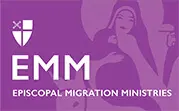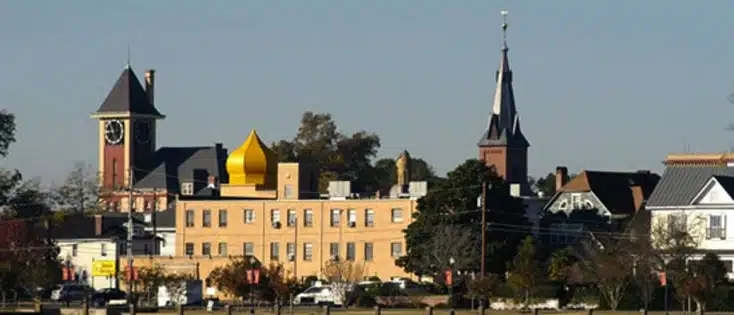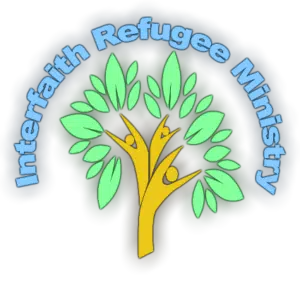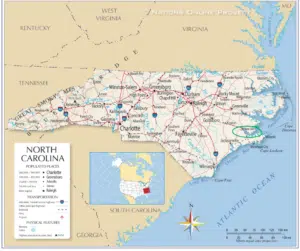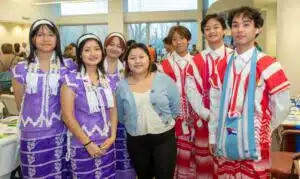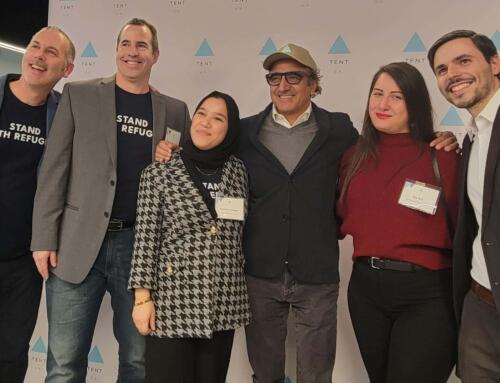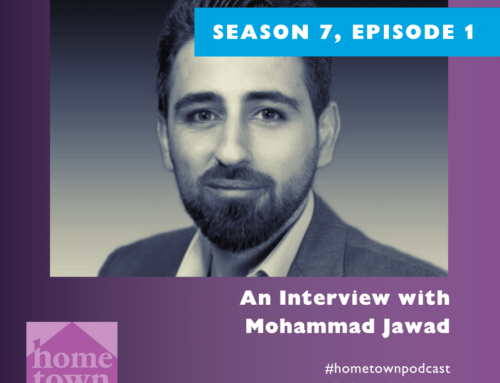In our previous post in the “Voices of Welcome” series, we explained the principles of “community sponsorship.” To better understand how community sponsorships work, we need to consider the perspective of both professional staff and community volunteers. That’s what we will do in the next parts of this series, by diving into the partnership between one of EMM’s affiliate organizations and one of the community sponsor groups they work with.
Interfaith Refugee Ministry (IRM) of New Bern, North Carolina has been resettling refugees for over 30 years. Given its history and location, it’s a place where the dynamics and advantages of community sponsorship are particularly easy to observe.
Where is New Bern? How did refugee resettlement start there?
New Bern is a small coastal community, located on the Neuse River, which flows into the Atlantic Ocean. By most standards, it is a small town, with a population of just over 30,000 (per 2022 US census figures).
Compared to the other organizations in EMM’s network, IRM has the smallest local community. While about a third of EMM’s affiliates are in major metropolitan areas with millions of residents (Houston, Los Angeles, Seattle, Minneapolis/St. Paul), the rest are in cities that are 5-18 times as large as New Bern. In this regard, the New Bern affiliate is small but mighty, given its record of refugee resettlement.
IRM was created in 1992 with support from the Episcopal Diocese of Eastern Carolina and has always been affiliated with EMM. In its early years, with active support from churches across eastern North Carolina, IRM resettled refugees from the former Yugoslavia (Bosnia, Croatia, Serbia), Vietnam, and Burma (now Myanmar). As the affiliate’s capacity grew, so did the diversity in national origins of the refugees they resettled. The affiliate currently has a staff of 15 employees and in recent years has resettled refugees from the Democratic Republic of Congo, Syria, Iraq, Afghanistan, and several Latin American or Caribbean nations.
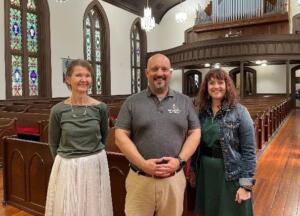
Susan Husson, IRM’s executive director, and Rev. Paul Canady, rector of Christ Episcopal Church in New Bern, as well as members of the IRM staff welcomed Sarah Shipman, EMM’s director of operations, during a site visit in June 2023. A resettlement agency needs a diverse and multilingual staff, no less true in eastern North Carolina than in large metropolitan areas.
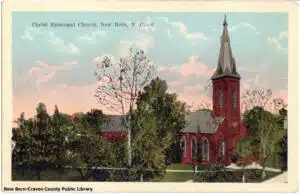
New Bern’s faith communities are central to its social fabric and have been key partners in welcoming a more diverse population through refugee resettlement.
What makes New Bern a welcoming community?
Although New Bern is small, it is a good place for refugee resettlement for several reasons:
- 1) a culture of volunteerism: Due to its size and location, New Bern has drawn many retirees. Retirees often have many forms of expertise, substantial free time and a desire to volunteer. Their willingness to support the community has been beneficial to IRM and other area non-profits. The New Bern Chamber of Commerce also has a non-profit council that meets monthly, making it easier for local organizations to know and support each other’s work.
- 2) employment and training opportunities: New Bern is home to several large manufacturing facilities that offer steady employment even for people with a limited grasp of English. There is also an excellent workforce development program through the local community college. These training and work opportunities make it easier for IRM staff and sponsors to help their clients become economically self-sufficient.
- 3) a web of faith-based communities: As a small, southern town, New Bern has a culture that values local ties and faith-based communities. Area congregations are well attended and serve as crucial centers of social life.
For years, IRM has appealed to local churches, inviting them to take on some of the responsibilities involved in welcoming refugees to the community. As Susan Husson, IRM’s executive director notes, “Churches have a ready-made group, which we find hugely helpful.” In other words, congregations are good potential co-sponsors because they can mobilize the kinds of support that these groups are expected to provide – financial and in-kind contributions as well as volunteers. Thus, they make natural partners for resettlement agencies, especially those operating outside of large urban areas.
Despite these strengths at the local level, IRM’s work takes place in a national and global context, and like other refugee resettlement agencies, the affiliate has faced challenges in recent years. In the next part of this series, we’ll look at factors that have complicated this work and what IRM staff and partners are doing to strengthen and expand resettlement in their area.
